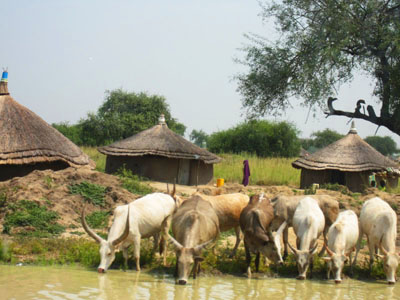MALAKAL, Southern Sudan—An insightful post recently appeared in the Making Sense of Darfur blog’s “Scenarios for 2011” series. Giorgio Musso, writing from Khartoum, posed a crucial question that is strangely absent from many of the concurrent debates occurring today on Sudan, both inside and outside of the country.

I write this as someone who has been living in southern Sudan for only a month. In this month, I have come to the realization—admittedly not an incredibly astute one—that life in Sudan will go on both after the elections and after the referendum. Despite this obvious fact, numerous actors—including the Sudanese parties to the Comprehensive Peace Agreement and the “international community” broadly defined—maintain a laser-like focus on two “CPA benchmarks”: the national elections scheduled for April 2010 and the 2011 southern self-determination referendum. As Mr. Musso writes of the two parties:
At present, it seems that each one is planning to step down at a different stop: for the NCP, the elections, for the SPLM/A, the referendum. They seem not to be conscious that the referendum won’t be the end of the ride, but just the beginning of a longer one.
Likewise, the international community—donors, the United Nations Mission in Sudan, the international envoys representing China, Russia, the U.S., and Europe—is struggling to provide resources for the upcoming elections, to drop food by planes in “pre-famine” areas of southern Sudan, and to pressure the parties to move beyond the current deadlock on pending referendum legislation and national security reform. In this “a crisis a minute” atmosphere, long-term planning and hard-thinking on what foreign assistance and effective diplomacy will look like following the referendum—no matter its outcome—are falling by the wayside.
This is not to say that the Sudanese parties and the international community are not aware of the need for “post-referendum planning.” However, given limited resources and a waning CPA implementation timeline, Mr. Musso’s suggestion is a wise one:
The real question at this moment is: what to do after secession? This is the real problem. In fact, everybody seems to know it, but nobody seems brave enough to face it. The NCP and the SPLM/A, along with foreign envoys, are still quarreling about Referendum Law, quorum, etc. but what Sudan needs at present is the two parties sitting around a table and beginning to discuss how secession is going to take place and how the relations between the two new entities will be settled.
So what are the nuts and bolts of the post-secession scenario, and are these issues being addressed today? Many questions that pertain directly to the rights of Sudan’s peoples, and to the future relations of what will likely be two countries, have not even been put on the table. For example, Mr. Musso wonders how the “Pakistan 1947” scenario can be avoided with an estimated two to three million southerners living in the North, and many northerners living throughout the South. This issue is one of many that underline the need for sustained dialogue not only between the NCP and the SPLM, but with real participation from Sudanese people around the country.

